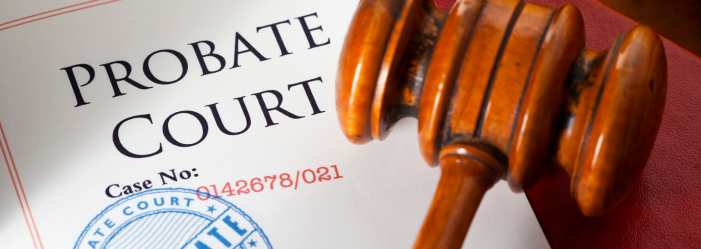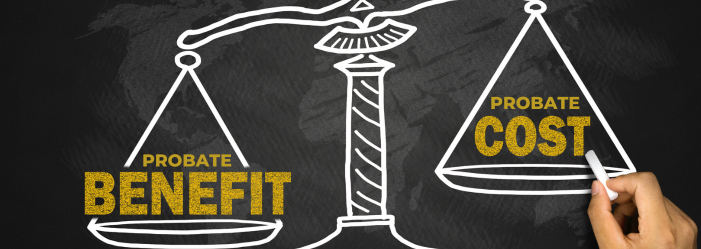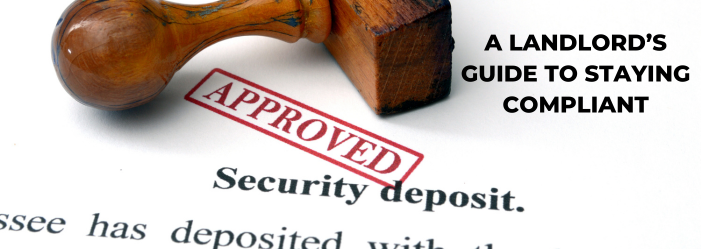What to Expect in Probate Court: Navigating the Process and Overcoming Challenges
Need A Florida Lawyer? Fill Out The Form Below
Demystifying Probate: A Step-by-Step Guide to Resolving Estates with Confidence

What to Expect in Probate Court: Navigating the Process and Overcoming Challenges
Probate court is a specialized legal process that oversees the distribution of a deceased person’s estate, ensuring that debts are paid and assets are transferred to the rightful beneficiaries. Whether a will is in place or not, probate court plays a central role in administering the estate and resolving any legal issues that arise. This article explores what to expect in probate court, steps involved in the process, challenges you may face, tips for navigating the court effectively, and insights specific to Florida’s probate laws.
What Is Probate Court?
Probate court is responsible for supervising the legal distribution of an estate after someone passes away. This process ensures that any outstanding debts are settled, the will is validated (if present), and remaining assets are distributed to beneficiaries according to the will or state law. Probate is required whether or not there is a will, though a clear, valid will can make the process smoother. Without a will, probate becomes more complex, as state intestate laws dictate how assets are divided among heirs.
Steps Involved in Probate Court
The probate process typically follows these key steps:
- Filing a Petition: The process begins when the executor or a family member files a petition in probate court, officially opening the probate case. This filing usually includes the deceased person’s will (if available) and a death certificate.
- Appointment of Executor or Administrator: The court appoints an executor (if a will is present) or an administrator (if no will exists) to manage the estate, pay debts, and distribute assets to beneficiaries.
- Notifying Heirs and Creditors: The executor must notify all heirs, beneficiaries, and creditors about the probate proceedings. In many states, including Florida, this notice is also published in a local newspaper, giving creditors time to file claims against the estate.
- Inventorying Assets: The executor is responsible for identifying, collecting, and valuing all assets in the estate. This step may require professional appraisals, especially for high-value items like real estate or business interests.
- Paying Debts and Taxes: Before distributing assets to beneficiaries, the executor settles all outstanding debts and taxes owed by the deceased, which may require selling some assets to generate funds.
- Distributing Assets: Once debts and taxes are paid, the executor distributes remaining assets according to the will or, if no will exists, according to state law.
- Closing the Estate: After all obligations are fulfilled, the executor submits final paperwork to the court, requesting that the estate be officially closed and their duties concluded.
Navigating Probate Court Challenges
The probate process can be complex, and several challenges can arise, including:
- Will Disputes: Disputes may occur if heirs contest the will’s validity, claiming undue influence, fraud, or lack of mental capacity. These legal battles can be lengthy and delay the probate process.
- Family Conflicts: Emotional tension often runs high, which can lead to disagreements among family members, particularly over inheritance shares, the sale of property, or the decedent’s wishes.
- Executor Misconduct: Problems may arise if the executor is unwilling or unable to serve effectively or if they are accused of mismanaging estate assets, leading to delays and potential legal action.
- Locating and Valuing Assets: Identifying all assets, especially if they are located in multiple places or poorly documented, can be a significant challenge. Professional appraisals may be needed for unique assets like real estate, business interests, or collectibles.
- Settling Debts and Taxes: Executors must ensure that all debts and taxes are accurately settled before distributing assets. Complications here can lead to further delays and legal issues.
- Uncooperative Beneficiaries: Missing or uncooperative beneficiaries can stall proceedings, as the court may need to intervene to address these issues.
Tips for Navigating Probate Court Successfully
To streamline the probate process and overcome potential challenges, consider these tips:
- Hire a Probate Attorney: Probate law is complex, and an experienced attorney can help avoid costly mistakes, handle disputes, and ensure that all legal obligations are met.
- Maintain Clear Communication: Keeping beneficiaries informed throughout the process can help manage expectations and prevent misunderstandings.
- Stay Organized: Executors should maintain detailed records of all transactions, debts paid, and assets distributed. This documentation is essential for court filings and can resolve disputes if they arise.
- File Documents Promptly: Meeting filing deadlines for documents like petitions, tax returns, and creditor notices can prevent unnecessary delays.
- Prepare for Delays: Probate can take months or even years to complete, so it’s essential to be patient and realistic about the timeline.
- Consider Mediation: In cases of family disputes, mediation can help resolve conflicts without costly and time-consuming litigation.
Unique Aspects of Florida Probate Court
Florida has distinct probate procedures, primarily including
Formal Administration and
Summary Administration:
- Formal Administration: This standard process is required for estates valued over $75,000. It typically involves more court supervision, creditor notification, and a mandatory 90-day period for creditor claims. Formal administration can take 6 to 18 months, depending on the estate’s complexity.
- Summary Administration: This expedited process is available for estates valued at $75,000 or less or when the decedent has been deceased for more than two years. Summary administration requires fewer formalities and often takes only a few months to complete, making it a cost-effective option for smaller estates.
- Disposition Without Administration: In cases where the estate has minimal assets, usually only enough to cover final expenses, disposition without administration can be completed in days or weeks, bypassing traditional probate steps.
Factors that can influence probate duration in Florida include estate size, complexity of assets, and the presence of disputes or creditor claims. Additionally, certain counties in Florida may experience delays due to administrative backlogs or specific procedural requirements, such as electronic filing systems and mandatory creditor notifications.
Conclusion
Probate court is an essential process for managing and distributing a deceased person’s estate, but it can be complex and time-consuming. Understanding the steps involved, potential challenges, and specific requirements in Florida can help individuals navigate probate more effectively. With careful planning and professional guidance, probate can proceed more smoothly, allowing families to settle estates with minimal stress.
How Katz & Associates Can Help
At Katz & Associates, we are committed to guiding families through the probate process with expertise and compassion. Our team helps clients navigate each step, handle disputes, and ensure that all legal requirements are met efficiently. Whether you’re an executor seeking assistance or a family member with questions about the probate process, we are here to help. Contact us today to learn more about our probate services and how we can support you through this challenging time.
Powered and Designed by Boost (boostvse.com)













